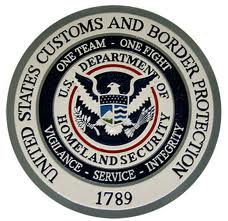Documents Needed to Cruise
I’m taking a “Closed Loop” cruise.
Do I need a passport?
Most cruises beginning and ending in the U.S. are considered “Closed Loop,” meaning they begin and end at the same port in the U.S. For instance, if you board a cruise ship at Fort Lauderdale, Florida, and after visiting at least one foreign port of call, such as Bermuda, or Cancun, return back to Fort Lauderdale, you have taken a closed loop cruise.
If, on the other hand, you – say – board a cruise ship in San Diego, California, sail through the Panama Canal (stopping at a foreign port during the cruise), and end the cruise in Miami, Florida, you have not taken a closed loop cruise and the following information does not apply to you. As of June 1, 2009 you need a passport (including infants).
U.S. Citizens on closed-loop cruises will be able to enter or depart the country on the cruise with proof of citizenship, such as an original or copy of his or her birth certificate (issued by the Vital Records Department in the state where he or she was born) and, if 16 or older, a government issued photo ID. If the child is a newborn and the actual birth certificate has not arrived from the Vital Records Department, we will accept a Hospital issued birth certificate. The United States does not require you to have a passport. (A Consular report of Birth Abroad issued by the Department of State or a Certificate of Naturalization is also acceptable.)
HOWEVER, it is possible that one or more of the Caribbean Islands on your itinerary, does require you to have a passport to enter their country. In that case, it is very possible that the cruise line will require you to have a passport to board, even if it is not a U.S. requirement. You should always check with your cruise ship, travel agent and or destination country to confirm the requirements for entry into the foreign countries you will be visiting. Customs and Border Protection (CBP) provides documents requirements for entry into the United States only.
If you are a Lawful Permanent Resident (LPR) of the U.S., the U.S. government does not require you to have a passport for any travel, including air, land or sea travel, however, you are even more likely to be required by your destination country to have one. A Caribbean island that does not require a U.S. Citizen to have a passport may require a U.S. LPR to have one, and a visa as well.
If you are not a U.S. citizen or a U.S. LPR, you will need a passport for any type of cruise, closed loop or not. If you are traveling under the Visa Waiver Program (VWP), your I-94W (immigration stamp) that you were issued when you first entered the U.S. can be used for reentering the U.S. at the end of your cruise – as long as the cruise ends before your 90 day admission period has expired and you did not travel beyond adjacent islands or contiguous territory, and you were not outside the U.S. for more than 30 days. If the cruise takes you beyond that 90 day admission period, you will have to apply for a new admission, and you will have to convince the CBP Officer that you were not just taking the cruise in an attempt to circumvent the 90 day limit for VWP travelers.
Finally, if you are a VWP traveler who entered the U.S. by land from either Canada or Mexico, an ESTA is not required for re-entering the U.S. as a cruise ship passenger. ESTA is only required for travelers upon their initial arrival in the U.S. by air or sea.
Note: Beginning September 8, 2010, there is a ESTA application fee required by the Travel Promotion Act of 2009. The fee is comprised of two parts:
- Processing Charge — All applicants requesting an electronic travel authorization are charged for the processing of the application. The fee is $4.00.
- Authorization charge — If your application is approved and you receive authorization to travel to the United States under the Visa Waiver Program, an additional $10.00 will be charged to your credit card. If your electronic travel authorization is denied, you are only charged for the processing of your application. CBP is not responsible for any third party fees for the transaction.




